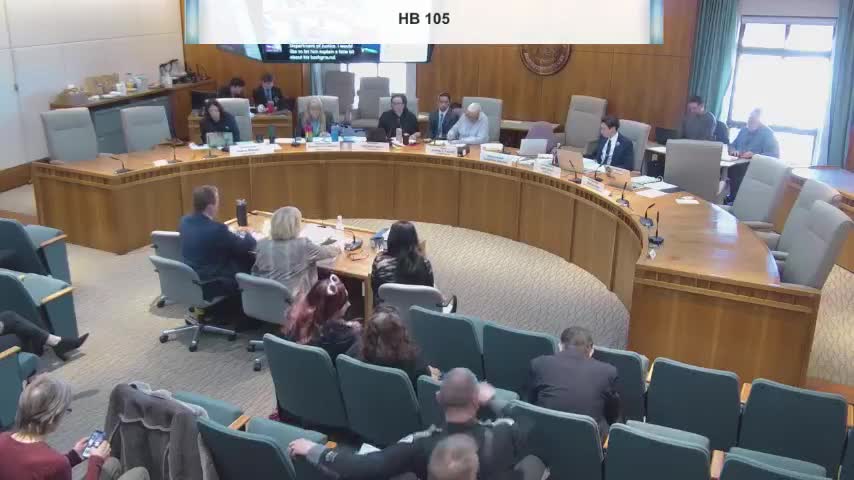Committee rolls over bill to allow toxicologists to testify remotely amid constitutional concerns
Get AI-powered insights, summaries, and transcripts
Subscribe
Summary
Lawmakers heard competing legal views on a bill to let lab analysts and toxicologists testify by video at hearings and bench trials for DWI and misdemeanor cases; supporters cited pandemic-era practice and cost savings while public defenders warned of Sixth Amendment confrontation issues.
A House committee heard extended debate on House Bill 105, a proposal to let toxicologists and scientific-laboratory analysts testify by video at certain hearings and bench trials. The committee agreed to roll the bill over to allow further negotiation after witnesses raised constitutional and practical concerns.
Proponents said the change would formalize a practice used during the COVID-19 pandemic and ease logistical burdens on a small pool of analysts whose travel to remote courthouses slows testing and prosecutions. "This bill essentially takes our COVID experience in dealing with the courts remotely and applies this to toxicologists and analysts," said special prosecutor Brian Nickerson of the New Mexico Department of Justice, describing remote testimony as a way to keep analysts in the lab doing testing rather than driving long distances.
Public defenders and constitutional-law critics warned the proposal may run afoul of the confrontation clause of the Sixth Amendment and recent U.S. Supreme Court precedent. Kim Chavez Cook of the Law Offices of the Public Defender told the committee that the high court's 2024 Smith v. Arizona opinion strengthened the confrontation clause in lab-analyst testimony matters and said video testimony "generally does not satisfy the constitutional right to look your accuser in the eye when you cross examine them."
Several prosecutors and law-enforcement leaders argued the bill is narrowly tailored to analysts who do not handle live evidence at trial, and they said courts and courthouse technology now permit meaningful cross-examination. "This is a common-sense approach with the technology that the courtrooms have all now put in place," Nickerson said, adding the measure is limited to bench trials and traffic matters rather than all criminal trials.
Stakeholders also discussed operational details. Nickerson and other supporters said the Scientific Laboratory Division is centralized in Albuquerque and that analysts traveling to outlying courthouses can face three-and-a-half-hour drives, pressuring lab productivity and court schedules. Opponents said convenience alone cannot override constitutional requirements and warned the bill could invite litigation.
Witnesses included trial judges, prosecutors, state police and municipal chiefs, who backed the measure as a modernization that could speed cases and free analysts to do testing. The committee did not vote on the bill on Saturday; sponsors agreed to roll it to give prosecutors, public defenders and judiciary staff time to draft clarifying amendments on contentious items such as defendants' opt-out rights.
The bill will return to committee for further drafting and debate. Supporters flagged cost savings and speed gains; opponents emphasized constitutional risks and the possibility of litigation if statutory language insufficiently safeguards confrontation rights.
